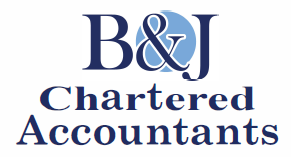Harry Potter star loses £1.9m tax row
Harry Potter star Rupert Grint has lost an appeal at the tax tribunal after attempting to pay capital gains tax on his earnings from the films. What’s the full story?

Rupert Grint (RG) took on the role of Ron Weasley at the tender age of 13, and so as you may expect, his father was primarily responsible for business administration. Following discussions with his tax advisers, RG's father (now deceased) incorporated a company, Clay 10, in 2011 and transferred RG's rights to be paid for the films to Clay 10. His tax advisers calculated that income tax would need to be paid on over £4m earnings already accrued, but that £4.5m could be treated as a capital gain, representing the transfer of rights, records and goodwill. Entrepreneur’s Relief (now Business Asset Disposal Relief) was claimed such that RG paid a mere 10% tax on £4.5m, which was left outstanding as a director’s loan account.
HMRC opened an enquiry and determined that the £4.5m should have been charged to income tax due to specific provisions in the income tax legislation that, broadly, imposes an income tax charge where an arrangement is made with the intention to reduce the income tax on earnings of an individual. As RG’s late father was the driving force behind the arrangement, there was little meaningful evidence RG could provide. There was an understanding that his father wanted to protect the funds by way of limited liability and RG asserted that tax avoidance would not have been his or his father’s main concern. However, HMRC argued, and the tribunal ultimately agreed that the main aim of the arrangement was to shelter the earnings from income tax. Weight was given to various emails from the tax advisers stating that the consideration could be left outstanding, and that 10% tax could be paid instead of 52%. The tax advisers claimed that tax was the focus of their correspondence due to their role but that this did not mean that reducing taxes was the main objective.
Related Topics
-
Planning ahead for pension salary sacrifice changes
From 6 April 2029, both employers and employees will be required to pay Class 1 NI on pension contributions in excess of £2,000 made through a salary sacrifice arrangement. What can you do about it?
-
Marginal relief - responding to an HMRC nudge letter
HMRC is running a campaign to clamp down on incorrect claims for corporation tax marginal relief (MR). In what circumstances might you be challenged by HMRC and how should you respond?
-
Can you claim input tax on costs linked to electric cars?
Your business intends to go green and buy new electric cars. Can you claim input tax on the purchase of the vehicles and their subsequent fuel costs? Additionally, what recent change has been announced by HMRC?




 This website uses both its own and third-party cookies to analyze our services and navigation on our website in order to improve its contents (analytical purposes: measure visits and sources of web traffic). The legal basis is the consent of the user, except in the case of basic cookies, which are essential to navigate this website.
This website uses both its own and third-party cookies to analyze our services and navigation on our website in order to improve its contents (analytical purposes: measure visits and sources of web traffic). The legal basis is the consent of the user, except in the case of basic cookies, which are essential to navigate this website.